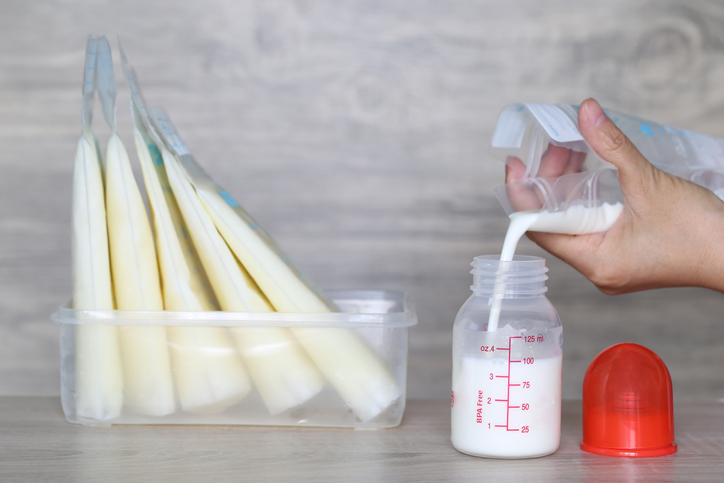Every parent wants to give their baby the perfect start to life. As such, many hopeful parents consider using donated breast milk to make that plan a reality.
Donated breast milk is a great option for any adoptive parent. But, if you’re new to this idea, you might be confused about where to obtain it safely and what you should watch out for.
To help answer your questions, we’ve created this guide to everything an adoptive parent should know about donated breast milk. If you’re considering this option over inducing lactation or formula-feeding, keep reading below.
Where Can I Find Donated Breast Milk?
The best place to find safe donated breast milk is through a milk bank. This is also known as formal milk sharing.
Any donated breast milk you receive from these banks is screened. You can rest easy knowing any breast milk you obtain is safe and ready for your baby to consume.
But with that being said, there are some important facts you should know about receiving milk from a milk bank.
First and foremost, donated breast milk is reserved for:
- Hospital patients, such as infants who are in the Neonatal Intensive Care Units (NICU’s)
- Babies born prematurely or sick
- Babies whose mothers are unable to provide breast milk due to a medical condition
- Research programs
Where Else Can I Find Donated Breast Milk?
Sometimes, you might be able to receive donated breast milk from someone in your community or a family member. There are also opportunities for this kind of informal milk sharing group on social media or other websites.
If you’re not able to receive donated milk from a milk bank, and you trust your personal donor, this might be a good option. However, please do plenty of research beforehand to ensure that you’re still receiving milk safely. While it might be more convenient to find personal donated breast milk, you won’t find any held to the same strict regulations as you would at a milk bank.
If you choose to work with an informal milk-sharing group, there are some important questions you should ask any potential donor:
- How do you plan to collect, store and transport the milk safely?
- Are you willing to share health and lifestyle information?
- Do you use any substances or medications that could be present in the milk?
- And more
Even with these precautions, there are a few aspects that you should still be aware of when using an informal milk-sharing group. As we’ll talk about below, there are some risks associated when using unscreened and unpasteurized milk — especially when you’re looking online.
What Should I Know About Looking for Donated Breast Milk Online?
Because you find almost anything on the internet, it shouldn’t come as much of a surprise that you can also find breast milk there. However, you should know that doing so poses a big risk.
Before you receive donated breast milk online, keep these things in mind:
- You’ll be purchasing unregulated and untested milk: Donated breast milk that you find online is not subject to screening, which makes it incredibly dangerous for newborn infants. To put it simply, you don’t know what kind of harmful substances are in it, and you can’t tell just by looking at whether it’s safe for your baby.
- You don’t know if it’s legitimate: When you purchase anything online from a seller you don’t know well, there’s always a chance of being scammed. And that includes when you’re purchasing donated breast milk. In fact, there have actually been several instances where breast milk bought online was contaminated with cow’s milk.
- You don’t know how it’s stored: When you purchase human milk online, you don’t know how it’s been stored or maintained before it makes its way to you.
Given the risks, we can’t say that it’s safe to purchase milk online. Whenever possible, the best place to receive it is from a milk bank.
How Can I Safely Receive Donated Breast Milk?
The best way to ensure the donated breast milk you receive is safe is to obtain it from a credited Human Milk Banking Association of North America milk bank. The good news is that there are quite a few locations spread out across the country. If you’d like to contact one today, their website offers a list of active accredited HMBANA sites.
What if I Can’t Receive Donated Breast Milk?
We know how frustrating it can be to not find donated breast milk. You’ve spent some much time planning this out, and it can be disappointing if you have to let it go.
However, we do want to remind you that no matter what you decide to do, “fed is best.” The most important thing to make sure of is that your baby is getting safe, healthy food with all the nutrients they need to thrive and grow.
Don’t forget: Your doctor will be the best person to talk to about what to feed your baby. If you have any questions about what’s best to use, especially if you’re thinking of using donated breast milk, don’t hesitate to reach out.
Please remember that this information is not intended to be taken as medical advice. When in doubt, always speak with a medical professional.



